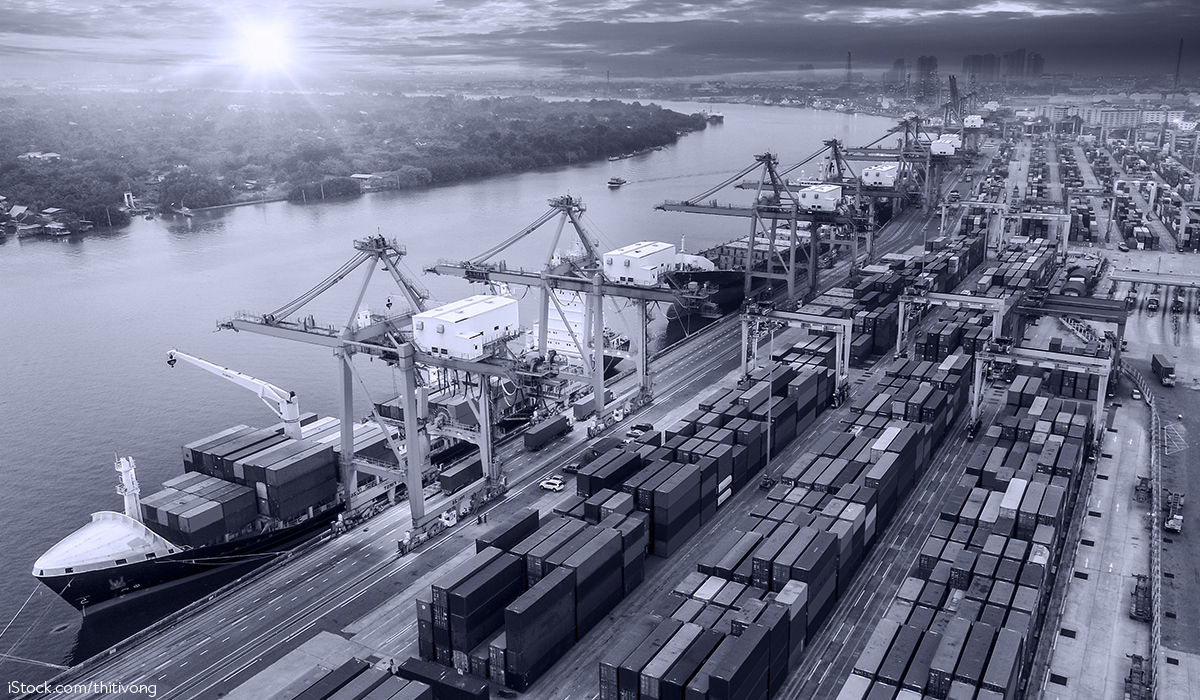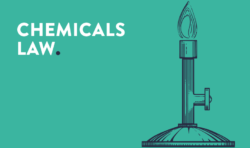After we have already reported on the first draft bill (see: Draft bill of the Supply Chain Act is available) and the first government draft (see: Update on the German Supply Chain Act), this article looks in detail at selected changes made with the final version of the act. Although the basic pillars already contained in the previous versions – a graduated regime of obligations according to the company’s own business area, direct and indirect suppliers, and obligations to set up a risk management system, to carry out risk analyses, to issue a policy statement and implement further preventive measures, to take remedial action in the event of violations occurring, to set up a grievance procedure and related documentation and reporting obligations – have not been changed in essence, minor detailed changes have been made in several places with quite significant effects.
Scope of application
The version finally adopted now clarifies that when calculating the relevant number of employees of companies domiciled in Germany (as a rule at least 3,000 as of January 1, 2023 and at least 1,000 as of January 1, 2024) which have their head office, principal place of business, administrative headquarters or registered office here, only those employees employed in Germany and posted abroad have to be included. This applies both to employees at the directly affected company itself (Sec. 1 para. 1 1st sentence LkSG) and to employees in affiliated companies pursuant to Sec. 15 AktG, i.e. subsidiaries and subsequent structures, provided that the requirements of Sec. 15 AktG are met in each case. Employees in dependent or independent units abroad are thus not to be included in the calculation unless they qualify as posted employees under the legal requirements.
While this change can rather be seen as a restriction of the former scope of application, the new Sec. 1 para. 1 2nd sentence LkSG represents a significant expansion. While the 1st sentence only covers legally independent entities based in Germany, the 2nd sentence expands the scope to the effect that dependent branches (within the meaning of Sec. 13d HGB) of companies otherwise based exclusively abroad also fall within the scope, provided that these branches themselves generally have at least 3,000 (or, as of January 1, 2024, generally at least 1,000) employees. In contrast, other than in the French Loi de Vigilance, for example, companies based exclusively abroad are not directly covered even if they are active on the German market. The same applies if these companies have one or more branches in Germany, but these remain below the employee thresholds.
However, this should not obscure the fact that independent, group-affiliated branches in Germany of parent companies based abroad naturally fall within the scope of the LkSG, provided the respective German company reaches the employee thresholds of 3,000 or 1,000 employees.
Protected legal positions
In the definition of human rights risks in Sec. 2 para. 2 LkSG, it was once again made clearer than in the previous versions that, in principle, the regulations applicable under the law of the place of employment of the respective person are to be taken into account. However, it remains completely unclear how to deal with situations in which the law of the place of employment does not provide for any relevant regulations, as is likely to be the case, for example, with regard to the minimum wage and occupational health and safety in numerous countries around the world.
Due to the clear wording of Sec. 2 para. 2 LkSG, direct recourse to the international conventions law listed in the annex – insofar as these contain specific requirements that go beyond program sets in individual cases – is not likely to be considered. On the other hand, recourse to the catch-all clause in Sec. 2 para. 2 No. 12 LkSG does not appear to be ruled out from the outset. This defines as a human rights risk a condition in which a violation of “the prohibition of an act or omission in breach of duty going beyond numbers 1 to 11 is directly capable of impairing a protected legal position in a particularly serious manner and the unlawfulness of which is obvious in a reasonable assessment of all the circumstances that come into consideration.” However, an act or omission which is not subject to any legal rules under the law of the place of employment is also not (obviously) unlawful on the basis of the relevant standard. A recourse to the German standards or even the principles behind them is of course excluded, since German standards cannot claim any validity beyond the Federal Republic of Germany and certainly not worldwide. Accordingly, no human rights risk within the meaning of the German Supply Chain Act can be assumed in areas not regulated at the place of employment, no matter how glaring the deficiencies at the place of employment may be. Here, only upcoming enforcement or the guidelines to be published by BAFA will show how such cases are to be dealt with.
However, the situation is clearly different if there are applicable requirements under the law of the place of employment, but these are merely not enforced by the national competent authorities. In this case, the company covered by the Supply Chain Act will not be able to successfully invoke the fact that, due to a lack of enforcement in the respective countries, there is in fact no actual implementation of legal requirements that exist per se. In such constellations, however, it will probably be enormously difficult for German companies to persuade their affected suppliers to behave in a legally compliant manner, as they will be lulled into a sense of security by the lack of enforcement.
All in all, it will nevertheless be unavoidable to perform at least a rudimentary assessment of the relevant legal conditions in the respective countries in which at least the direct suppliers are located, if, as a directly affected company, you do not want to rely exclusively on statements from your suppliers or external service providers.
Environmental aspects
In addition to the requirements from the Minamata Convention on Mercury and the Stockholm Convention on Persistent Organic Substances, which have been included in the Supply Chain Act from the beginning, the requirements from the Basel Convention on the Control of Transboundary Movements of Hazardous Wastes and their Disposal have now been newly included as aspects of environmental law.
This also adds a considerable element of uncertainty in the field of environmental law, as international waste shipment law is one of the most complex and least contoured legal matters in environmental law. This is mainly due to the fact that even the classification of an object as waste or product can cause considerable difficulties in individual cases, because the concept of waste is composed of a combination of objective-subjective criteria, which have not been contoured in a reliably manageable way either in official enforcement or in judicial practice. The inclusion of international waste shipments in the LkSG will or at least should further increase the focus of the companies concerned on account of the fact that it is undoubtedly a very liability-prone area in which violations are almost universally subject to criminal sanctions as well.
Expansion of the term “own business area”
Somewhat surprisingly, the definition of a company’s own business area under Sec. 2 para. 6 LkSG has been significantly expanded. Whereas in all previous versions only the actual own business area of the company directly affected by the Supply Chain Act was taken into account, the adopted version now provides that group companies in affiliated companies are also included in the own business area of the parent company if the parent company exercises a “determining influence” on the group company. In other words, in numerous constellations, directly affected parent companies will also have to directly include their German and international subsidiaries in the fulfillment of due diligence obligations, as the entire group is seen as a single unit in the context of fulfilling the due diligence obligations under the Supply Chain Act.
According to the explanatory memorandum to the act, the question of whether a determining influence exists must be answered on the basis of an overall assessment of all relevant aspects. Of particular relevance here are the legal possibilities for exerting influence and all economic, personnel, organizational and legal interrelationships, such as majority shareholdings, group-wide compliance systems, assumption of central areas of responsibility by the parent company and comprehensive co-decision-making powers.
Sec. 7 para. 1 3rd sentence 3 LkSG also becomes relevant in this context, stipulating that directly covered companies, even in the case of dependent branches and subsidiaries abroad that are to be assigned to their own business area pursuant to Section 2 (6) of the LkSG, must as a rule take remedial action in the event of violations of human rights obligations and environmental requirements that have occurred, leading to the termination of the violation. This new requirement will make the implementation of the due diligence obligations of the Supply Chain Act even more difficult and costly.
Exclusion of civil liability from the LkSG
In order for the Supply Chain Act to be passed at all in this legislative period, the coalition parties, apparently under massive pressure from the CDU/CSU parliamentary group, agreed on a clause to exclude direct civil liability. The following wording was included in Section 3 para. 3 LkSG for this purpose: “A breach of the obligations arising from this Act does not give rise to civil liability. Any civil liability established independently of this Act shall remain unaffected.” According to the explanatory memorandum, this is intended in particular to rule out the possibility of the Supply Chain Act being interpreted as a protective law within the meaning of Sec. 823 para. 2 German Civil Code.
However, it does not expressly exclude the possibility of liability under civil law on the basis of other claims, which has already existed up to now. In this context, particular reference should be made to Art. 4 para. 1 Rome II Regulation, according to which, in an international context, the law of the country in which the damage occurs is generally applicable. Thus, as a rule, foreign law must be examined by the German courts (via Art. 4 para. 1 in conjunction with Art. 63 of Brussels Ia Regulation) to determine whether it gives rise to a claim against the German company.
Consequential change in the Works Constitution Act
Art. 3 LkSG introduces an amendment to the Works Constitution Act, which has received little attention to date, to the effect that issues relating to due diligence under the Supply Chain Act will also have to be discussed with the Economic Committee (Sec. 106 para. 3 No. 5b BetrVG). This will have to be taken into account in particular in internal training courses so that the relevant persons on the economic committee can also acquire the necessary knowledge.
Conclusion
Companies are currently faced with a flood of information on the Supply Chain Act and almost as many offers for implementing the requirements. Although it is certainly recommendable to deal comprehensively with the requirements of the Supply Chain Act following its final adoption, it is nevertheless important not to “put the cart before the horse”. Before comprehensive preparations are made to implement preventive and remedial measures, the first step should be to determine whether and to what extent a group is actually covered by the Supply Chain Act, before in a second step the supply chain is segmented into the company’s own business area, direct and indirect suppliers, and then thirdly the respective risks are determined in the individual segments (“risk mapping”). Only then it can be determined precisely which further measures are and will be required and to what extent.
Do you have any questions about this news, or would you like to discuss the news with the author? Please contact: Michael Öttinger






